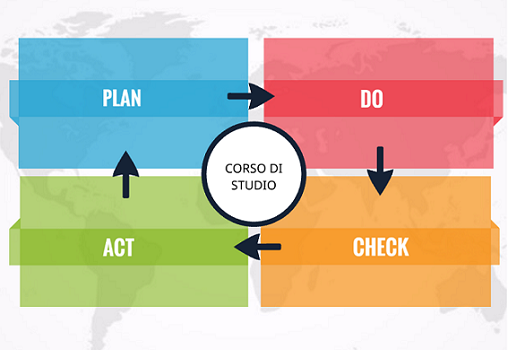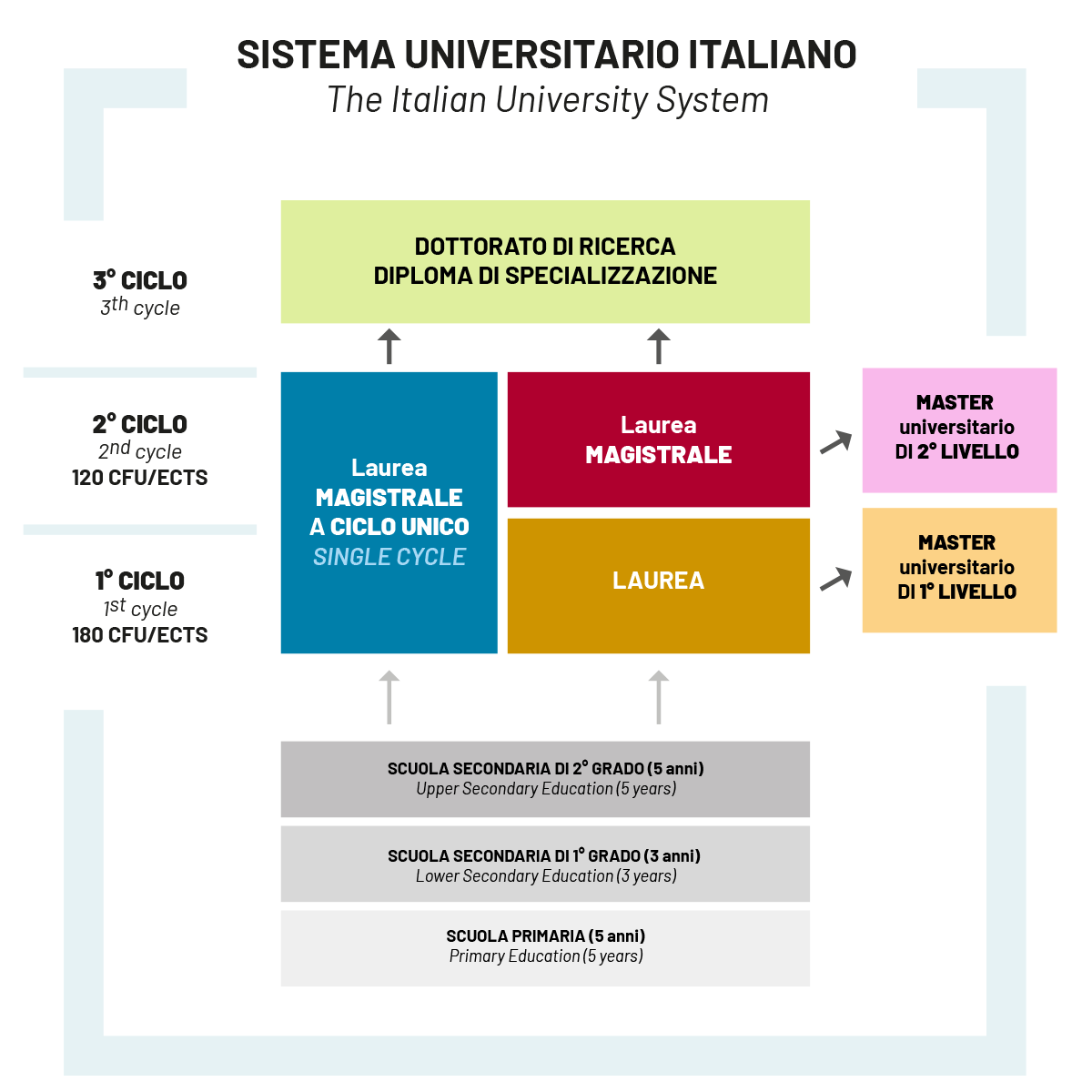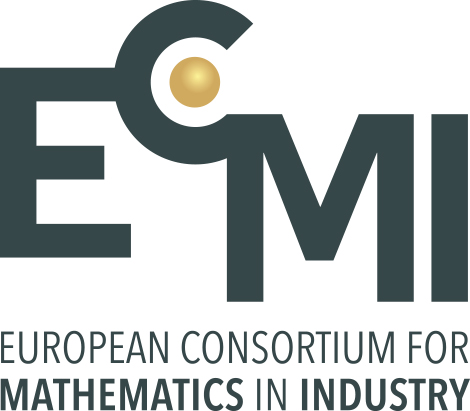The programme
This section provides a comprehensive overview of the degree programme, including details on its structure, regulations, and additional resources. It also introduces the University’s Quality Assurance system and outlines the Student Orientation services available to prospective students, aimed at guiding them in selecting the most suitable course.
The newly updated Student Orientation Office website is designed to provide a more comprehensive and user-friendly service. The primary users are secondary school students exploring the University for the first time, along wiht0 high schools’ University Orientation Services which organise activities to assist graduating students in their post-diploma decisions. The orientation process helps prospective students plan and select the best options that align with their expectations, preferences, and aspirations.
More details: www.univr.it/orientamento (italian page)
Email servizio.orientamento@ateneo.univr.it
Telephone number 0458028000 (tasto 1)
Timetable
Sportello telefonico 0458028000 (tasto 1) : dal lunedì al venerdì, dalle ore 9:00 alle 13:00.
Find out moreCourse of study in brief
The master's degree programme in Mathematics is characterized by a robust and
modern approach to mathematics, in line with the best and most up-to-date
national and international opportunities in STEM (Science, Technology,
Engineering and Mathematics). It is delivered in English and many lectures are given by foreign
lecturers from partner institutions at the top of international rankings. The
master's degree course is offered within a teaching center of the ECMI (European
Consortium for Mathematics in Industry), the only venue in the Northeast. In
particular, with appropriate choices in the study plan, it is possible to obtain
the ECMI certificate recognised at the European level. The degree courses are
designed to broaden the mathematical knowledge acquired in a three-year
undergraduate degree course and to allow for specialisation in some specific
areas. The degree is structured to provide students with advanced skills in the
main mathematical methods used in science, society and economics.
The course promotes the acquisition of transversal skills, aimed at offering the
student a rounded training that is applicable to the subsequent pathway to
employment. In particular those who follow relevant courses specifically offered
by the University or other institutions may have a corresponding number of
university credits recognised as part of their study programme.
The course is structured in two curricula. The Applied Mathematics curriculum, which
is highly professional, is based on solid modelling and computational
preparation covering, for example, industrial and applied mathematics, data and
decision science, mathematical finance, code theory and cryptography. The
Mathematics for Education curriculum is characterized in particular by teaching
the fundamentals of mathematics, computer science and physics, with additional
workshops in education. The course of study can be customised by attending some
courses at the University of Trento, with whom the University of Verona shares a
convention, and by participating in the international mobility programmes with
over thirty partner locations in Europe. It is also possible to participate in
three double degree programmes: with the Institut Polytechnique de Grenoble
(France), with the Université Bourgogne Franche-Comté (France) and with the
Universität Stuttgart (Germany). The wide and diverse range of courses on offer
allows students to include in their study plan the subjects most suited to their
chosen pathway. Here you can find suggestions for possible lecture courses to be included in the study plan. Additional tools are provided to all students to support the in-person lectures, such as bibliographic references, notes, handouts, video lectures or other teaching materials. Internships are possible at companies of national and international importance, e.g. in the banking, insurance and industrial sectors, research laboratories and educational institutions. These features of the course guarantee high competitiveness in the labour market and in scientific and technological research. A graduate of the master's degree in mathematics in Verona can successfully fit into work groups in the research and development sectors of companies and industries, scientific laboratories of public and private institutions (data analysis, software analysis and development, cryptography and security, modelling and simulation in a virtual environment, development of models and analysis of biomedical processes, methodologies and technologies for Industry 4.0...) and in financial and banking institutions or insurance companies, nationally and internationally. A graduate of the master's degree in mathematics can also enter the teaching profession in primary and secondary schools. He/she has the opportunity to fulfil the curricular requirements to enter the following teaching classes: Mathematics and Science in lower secondary schools, Mathematics, Physics, Applied Mathematics and Computer Science in upper secondary schools. He/she can also complete the initial teacher training course required by law to compete for tenured posts in the school. The Master's degree graduate in Mathematics can successfully pursue studies at the PhD level both in Mathematics and in other scientific fields (e.g. Computer Science, Statistics, Economics and Finance, Bioengineering and Biomedical Sciences) in Italy and abroad.
- Degree type Corsi di laurea Magistrale
- Duration 2 years
-
Part-time Study option available
Yes
- Admissions Subject to entry requirements
-
Degree class
LM-40
-
S.T.E.M. course
Yes
- Administrative headquarters verona
- Locations for lessons and exams Map of the Locations
- Language English
- Double Degree
The available courses are divided into two curricula (the “education” curriculum and the “applied” curriculum), the first prioritising the foundations of the education of secondary school teachers, and the second prioritising the areas of mathematics involved with the development of contemporary applied mathematics as well as those that give the best employment prospectives to the students.
The degree regulations ensure a deep preparation in the fundamentals of mathematics and in the indispensable skills required for advanced applications of algebra, geometry, analysis, stochastic analysis, mathematical physics and numerical analysis.
The degree programme is primarily structured with a core of traditional courses with consistent duration, in which a large part is dedicated to problem-solving.
Added to this is a range of courses leaning towards specific themes, in line with the chosen curriculum, the relevance of which is demonstrated by the presence of many of the central themes of international research. Within the “education” curriculum, mathematics, computer science and modern physics eduction are particularly emphasised, both at a theoretical level and through educational experiences in laboratory, as well as the psychology of education.
The “applied” curriculum offers advanced courses both of a theoretical nature (for example in the area of algebra or mathematical analysis), but also of a professional nature in the areas of financial mathematics, of modelling physical and biological phenomena, of the analysis and the processing of data and images, emphasising the computational methods associated with the various fields.
A wide choice of internships in educational institutions and work experience activities in companies, institutions and research centres in Italy, as well as periods of study abroad at prestigious partner institutions permit students to complete their educational development and improve their professional capabilities.
We observe, moreover, that while the degree programme is proposed as a natural development of degree programmes of type L-35, it is structured in such a way that it is accessible to and guarantees an effective pathway to anyone graduated from a relevant degree programme who intends to develop their studies accentuating the mathematical aspects that are at the base of the applied sciences.
The assessment of student learning outcomes is, in general, in a traditional format, that is, through written tests or oral exams. According to the particular cases, this can be partial substituted by and/or integrated with other forms of assessment such as homework, project reports, internships or presentations in the form of seminars.
JOB PROFILES: MATHEMATICIANS, FINANCIAL ANALYSTS, STATISTICIANS, SOFTWARE ANALYSTS AND DESIGNERS, SYSTEM ANALYSTS.
Role in a working context
The BSc prepares students for the professions of: Mathematician, Financial Analyst, Statistician, Software Analyst and Designer, Systems Analyst.
Competences associated with the role
The graduate of the master’s degree in mathematics is able to fit readily into various working environments thanks to his sound theoretical, modelling and numerical skills. He/she is able to adapt to new situations and problems, easily acquiring any specific knowledge not yet possessed, quickly and independently. He/she is able to successfully pursue studies at doctoral level in Mathematics as well as in Computer Science, Engineering, Statistics and Economics, in Italy and abroad, or to complete his training in the qualifying courses for the teaching profession in secondary school.
Employment opportunities
As evidenced by recent studies and by the results of the AlmaLaurea survey, the profile of the applied mathematician with a solid probabilistic-modelling-computational base constitutes a resource that is as rare as it is precious and extremely sought after in the productive world at European and international level in general. The master's degree student in Mathematics in Verona can successfully work in teams at financial and banking institutions or insurance companies, as well as in the research and development sectors of companies and industries (software analysis and development, cryptography and security, service companies for virtual experimentation, scientific laboratories of public and private institutions, development of models and analysis of biomedical processes, etc.) at regional, national and international level. He is able to perform his technical or professional tasks both independently and in teams with experts from other scientific disciplines, providing in particular modelling and computational support.
Quality Assurance
The quality of a degree programme is the extent to which it achieves its educational objectives and meets the quality requirements of the educational activities offered, which are determined in line with the needs and expectations of students and representatives of the world of work.
- periodic consultations with representatives of the world of work to assess the adequacy of the cultural and professional profiles offered in their courses;
- design of educational contents and planning of resources;
- organisation of educational activities and teaching services;
- monitoring the effectiveness of teaching and planning measures to improve teaching and services;
- provision of complete and up-to-date information on its website, relating to the programme (professional roles, expected learning outcomes, learning activities).

In a Quality Assurance system, students play a fundamental role: each student can play their part by participating in the Quality Assurance groups of their degree programme and in the Faculty-Student Joint Committees or, more simply, by taking part in the Student Survey on teaching, or questionnaires. It’s in this context that specific workshops for student representatives (‘Laboratori di rappresentanza attiva’) are periodically made available to students by the University and the University’s Quality Assurance Board. To find out more, please see the relevant section.
Il sistema di valutazione universitario e il ruolo dello studente
by Prof. Graziano Pravadelli: a lecture recorded on the occasion of the January 2021 workshop for student representatives.
QA bodies
QA in degree programmes
QA activities
Degree Programme description and regulations
The Degree programme teaching regulations, published on june/july set out the organisational aspects of the degree programme, in line with the University’s teaching regulations. It includes general information about the programme, links to the relevant module web pages and specifies the administrative aspects.
Other Rules
The Italian University system

First-cycle degrees: Bachelor’s degree programme
First-cycle degrees are aimed at enabling students to achieve a command of general scientific methods and content, and to acquire specific professional knowledge.Admission requirements: secondary school diploma after completing 13 years of study in total and passing the relevant State examination, or equivalent foreign qualification; admission may be subject to further assessment.
Duration: three years.
Graduation: in order to obtain the degree, it is necessary to gain at least 180 CFU; doing an internship and preparing a dissertation/thesis may also be required. Upon completion of a Bachelor’s degree, graduates may continue their studies by enrolling in a Master’s degree or other second-cycle degree programmes and courses.
Academic title: upon completion of a Bachelor’s degree (Laurea), graduates are awarded the title of “Dottore”.
Second-cycle degrees: Master’s degree
Second-cycle degrees aim to provide students with an advanced training and knowledge to take on highly-skilled roles.Admission requirements: applicants must hold a Bachelor’s degree, or a foreign equivalent qualification; curricular admission requirements for each course may vary depending on each University.
Duration: two years.
Graduation: in order to obtain the degree, it is necessary to gain at least 120 CFU, as well as preparing and presenting a dissertation/thesis.
Academic title: upon completion of a Master’s degree (Laurea Magistrale), graduates are awarded the title of “Dottore magistrale”. Single cycle/Combined Bachelor+Master’s degrees
Some courses (Medicine and Surgery, Veterinary Medicine, Dentistry and Dental Prosthetics, Pharmacy and Industrial Pharmacy, Architecture and Building Engineering-Architecture, Law, Primary Education) are offered as Single cycle/Combined Bachelor+Master’s degrees (Corsi di Laurea Magistrale a Ciclo Unico).
Admission requirements: applicants must hold a secondary school diploma or equivalent foreign qualification; admission is subject to passing an admission test.
Duration: five years (six years and 360 CFU for Medicine and Surgery, and Dentistry and Dental Prosthetics).
Graduation: in order to obtain the degree, it is necessary to gain at least 300 CFU, as well as preparing and presenting a dissertation/thesis. Upon completion of a Single-cycle degree, graduates may continue their studies by applying for a PhD programme (Dottorato di Ricerca) or other third-cycle courses.
Academic title: upon completion of a Master’s degree (Laurea Magistrale), graduates are awarded the title of “Dottore magistrale”.
Third-cycle degrees
PhD programmes: these courses enable students to gain reliable methodologies for advanced scientific research through innovative methodologies and new technologies, and generally include internships abroad and lab activities at research laboratories. Graduates wishing to apply for a PhD programme must have a Master’s degree (or a foreign equivalent qualification) and pass an open competition; PhD programmes have a minimum duration of three years. In order to complete the programme, students must produce a research thesis/dissertation and present it at a final examination.Academic title: upon completion of a PhD programme, students are awarded the title of “Dottore di ricerca”, or “PhD”.
Postgraduate specialisation courses: these are third-cycle courses aimed at enabling students to develop advanced knowledge and highly-specialised skills, such as in the medical, clinical and surgical fields. To be admitted to these courses, applicants must have a Master’s degree (or a foreign equivalent qualification) and pass an open competition. Postgraduate specialisation courses may last from two (120 CFU) to 6 years (360 CFU) depending on the type. Academic title: upon completion of this programme, graduates are awarded a “Diploma di Specializzazione”.
Professional Master’s programme
1st-level Professional Master’s programmes: these courses enable students to further enhance their scientific knowledge and professional skills. In order to apply, applicants must have a Bachelor’s degree, or foreign equivalent qualification. The minimum duration is one year (60 CFU). Please note that completing this course will not provide you with direct access to a PhD programme (Dottorato di Ricerca), or other third-cycle courses, as these courses are run and managed by each University at the local level. Upon completion of this programme, students are awarded a “Master universitario di primo livello”.2nd-level Professional Master’s programmes: these courses enable students to further enhance their scientific knowledge and professional skills. In order to apply, applicants must have a Master’s degree, or foreign equivalent qualification. The minimum duration is one year (60 CFU). Please note that completing this course will not provide you with direct access to a PhD programme (Dottorato di Ricerca), or other third-cycle courses, as these courses are run and managed by each University at the local level. Upon completion of this programme, students are awarded a “Master universitario di secondo livello”.
Other useful things
Crediti Formativi Universitari (CFU/ECTS credits): Italian university courses are based on the CFU system. 1 CFU is equal to 25 hours of study. The average annual academic workload for a full-time student is generally assumed to be 60 CFU. CFU and ECTS credits serve the same purpose and generally have the same value.Degree class: Bachelor's and Master's degree programmes that have the same learning objectives and activities are grouped into “degree classes". The educational content of each programme is set autonomously by each university; however, universities are required to include certain educational activities (and the corresponding number of CFU credits) set at the national level. These requirements are established in relation to each degree class. Degrees in the same class have the same legal value.
Double/Joint degrees: the Italian universities may establish degree programmes in partnership with other Italian or foreign universities. Upon completion of these courses, graduates are awarded a joint or double/multiple degree, one from each Partner University.



